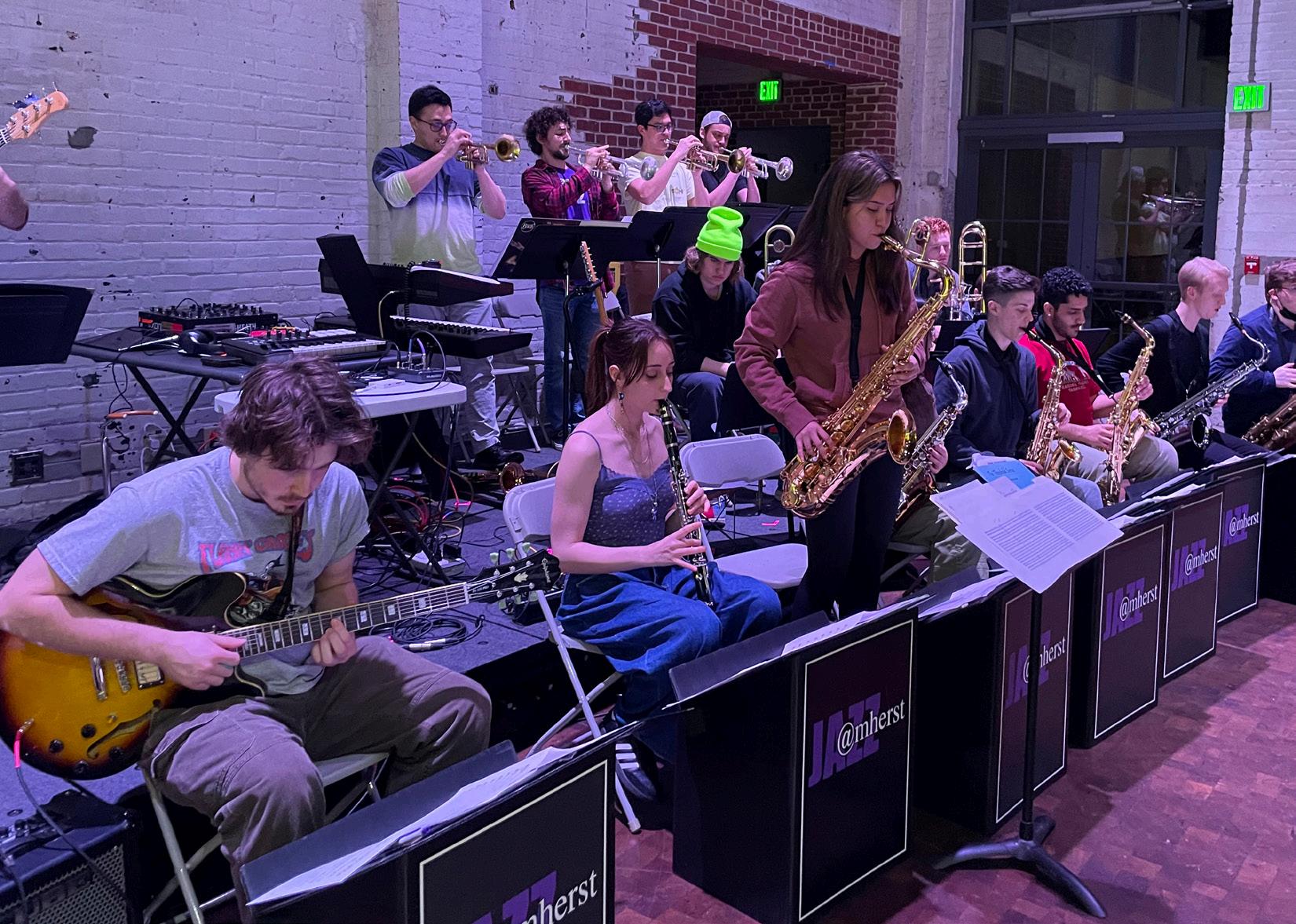
2 minute read
Amherst Uprising Participants Remember Frost Sit-in
Continued from page 2 not have felt like that was their place to be. But I think it was exactly where they needed to be.”
It was then, Rico said, that he began to realize the importance of the presence of allies in the room; specifically, people who were willing to listen, take responsibility, and realize that not everything can be solved easily.
Advertisement
When posed the question about how they found joy during the Uprising and their time at Amherst in general, the panelists were generally in agreement that community-building was an important factor.
Zamara remembered a moment when she and her best friend comforted one another after an emotional moment during the Uprising: “We were just hugging each other, saying, ‘I got you, I got you,’” she said. “That hug, that physical connection always brings me joy.”
When the panel opened up to the audience for a Q&A, multiple students asked for advice for current students doing social justice work and activism. Specifically, one audience member asked the panelists how to “call in” those who choose not to engage with social justice work at all.
Rico encouraged organizers not to sell themselves or their work short, and reassured the audience member that their work did not go unnoticed; Zamara and Mullings advised that having confidence and offering support to the people who do show up makes a bigger difference than people expect.
“We are enough; we have what we need. Whoever is in the room is enough,” Mullings said. “Momentum builds over time.”
Zoboi, who was asked by the MRC to moderate the panel, felt comforted by the panelists’ descriptions of their collective struggle as students of color in college.
“It’s very easy to just get caught up in your life and feel like you’re the only one that has gone through something,” she said. “[The panelists] were in the same position as we [students of color] are.”
Zoboi said that she and other organizers from the MRC had to “tiptoe” around certain topics or phrasing for fear of being “disrespectful” towards members of the administration who attended the event. Looking into the audience, she said, it felt “daunting” to see so many higher-up administrative people there.
“There’s a juxtaposition, because if they had just ignored the event, I would’ve given them a real side eye,” she said. “But I feel like sometimes we had to be very careful with what we said, because this was a historical event that criticized the administration.”
Zoboi also mentioned that because the MRC is funded by the college, it created even less of an incentive for her to ask questions that might lead the panelists to criticize the administration. For her, she said, it became a question of how to allow for such criticism without being flippant or inaccurate. “I think we did a good job,” she said.










